Water and Energy in MENA After COP28
Submit a question
Introduction
Hussein El Gaafary from the Trade and Commercial Office at the UAE Embassy in Washington, D.C., opened the meeting by highlighting the UAE Embassy's support for the Agents of Change Youth Fellowship and highlighting the country's dedication to water security, conservation, sustainable food production, and the expansion of green businesses. He also discussed Alterra, the UAE's private green investment fund, and the UAE’s ongoing relationship with future COP hosts like Azerbaijan and Brazil.
Managing Scarcity in the Euphrates-Tigris River Basin
Gokce Sencan resented her project and outlined the impact of the basin's climate on Iraq, Syria, and Turkey. She highlighted several pressing issues in the basin, including waterlogging, pollution, high salinity, ecosystem degradation, and increasing water stress in Iraq and Syria (projected to also affect Turkey by 2040). Future projections suggest a potential 60% reduction in snow-water availability and a loss of up to 55% of river flows. These climate challenges also contribute to food insecurity due to lower agricultural yields.
She highlighted several challenges in managing the basin, including Turkey's upstream advantage, which allows it to control the release of water. There are disagreements over hydrological, legal, and historical assumptions, with Iraq and Syria arguing for co-sovereignty over the rivers' governance. There is also a lack of trust between nations and insufficient data, for which Sencan recommends the usage of citizen science to collect samples from local sources.
To enhance coordination, she proposes a trilateral organizational structure comprising (1) a High-Level Decision Council, (2) a Trilateral Science Committee, and (3) a Trilateral Planning Committee. All three units would make decisions by consensus.
Enabling Sustainable Energy Security in Syria
The conflict in Syria has presented significant challenges for the country's energy sector. The shortage of oil and natural gas has made it difficult to meet the demand for electricity. Nour Barakeh’s project highlights that solar panels have emerged as an alternative; however, their high cost makes them inaccessible to many, especially those with limited income facing economic hardships. The situation is further compounded by imbalanced power dynamics in trade.
Barakeh states that the war has destroyed critical infrastructure such as oil and gas facilities, power plants, and electricity distribution networks. Insufficient access feeds humanitarian crises, and Syria’s demand for electricity will continue to rise.
The United Nations Development Program (UNDP) has launched a critical electricity and energy support project in Syria. For the manufacturing of solar panels in Syria, Barakeh advises directly importing materials and parts, potentially facilitated by eased restrictions among Arab countries and Syria.
Discussion
Marwa Daoudy, associate professor of international relations and Sheif Ghobash chair in Arab studies at Georgetown University, said that Sencan’s project showed how the state of relations between riparian states is important in determining who has access to the waters of international rivers. She also highlighted the significance of the Great Anatolia Project (GAP) in connection with Sencan's initiative.
Geography Professor Natalie Koch at Syracuse University emphasized the need for a higher authority to intervene if negotiators reach an impasse regarding Sencan's proposal. However, Sencan stated that Turkey is highly suspicious of third-party interference. For her, one solution could be for Iraq and Syria to try resolving the dilemma first.
Daoudy commended Barakeh for showing how fragmentation in Syria has meant injustice in terms of access to electricity and clean water. Koch said that Barakeh’s paper emphasized the importance of solar power in desert environments and suggested that she expand on the specific purpose of renewable energy in her project, such as its application in agriculture or other areas.
Check out the ACYF's full body of work on our website.
Speakers
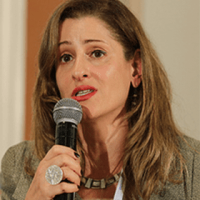
Associate Professor of International Relations and Seif Ghobash Chair in Arab Studies, Georgetown University
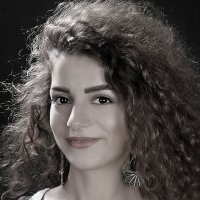
Energy and Communication Consultant for the International Forum for Understanding, Cambridge
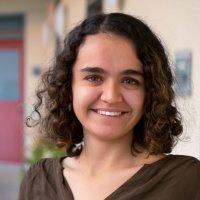
Water Researcher
Introductions

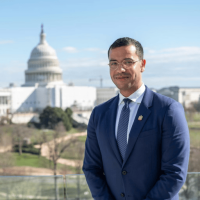
Moderator
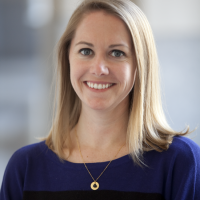
Hosted By

Middle East Program
The Wilson Center’s Middle East Program serves as a crucial resource for the policymaking community and beyond, providing analyses and research that helps inform US foreign policymaking, stimulates public debate, and expands knowledge about issues in the wider Middle East and North Africa (MENA) region. Read more


Environmental Change and Security Program
The Environmental Change and Security Program (ECSP) explores the connections between environmental change, health, and population dynamics and their links to conflict, human insecurity, and foreign policy. Read more
